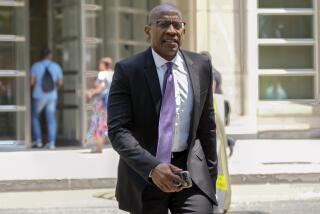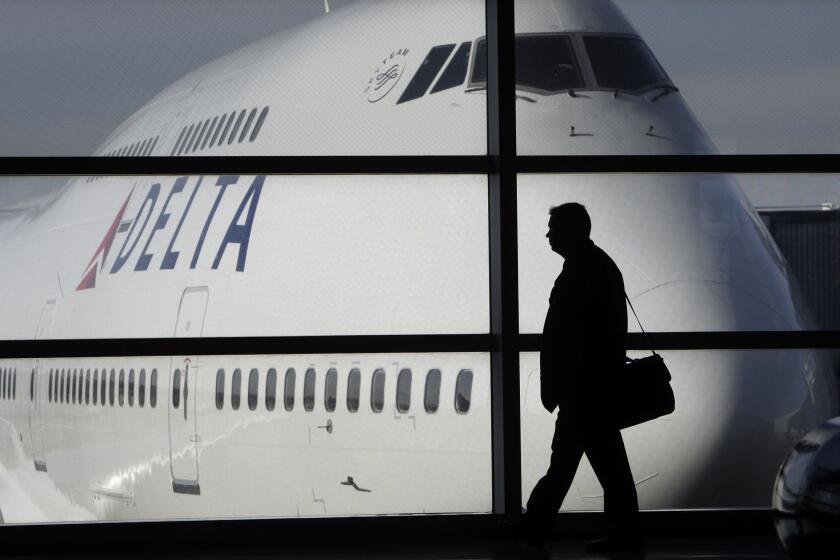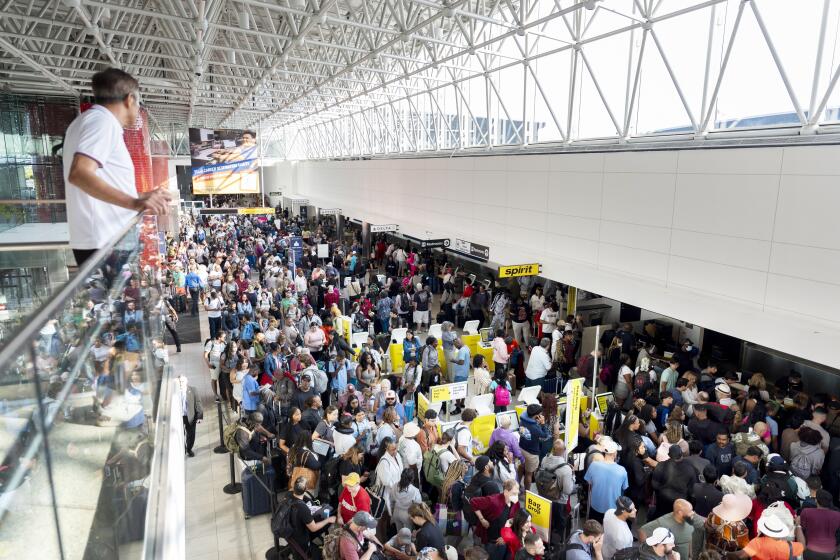Trial of Galleon’s Raj Rajaratnam centers on research methods, insider trading
A billionaire hedge fund manager repeatedly made illegal stock-trading profits thanks to tips from well-placed associates, then used fake e-mail threads and a secret Swiss bank account to try to cover his tracks, the prosecution argued at the start of the biggest insider trading trial in decades.
“Greed and corruption. That is what this case is about,” Assistant U.S. Atty. Jonathan Streeter said in his opening statement Wednesday in the trial of Raj Rajaratnam, the head of investment firm Galleon Group and one of Wall Street’s most acclaimed investors.
Rajaratnam gained an “unfair advantage over ordinary investors” by exploiting friends, employees and even a colleague’s housekeeper, Streeter told the jury in federal court in Manhattan.
The defense, however, characterized the hedge fund chief’s extensive research on companies as totally legitimate.
Rajaratnam, 53, who founded Galleon in 1997, faces 14 counts of conspiracy and securities fraud in a case that is the centerpiece of the government’s expanding assault on insider trading. He faces as much as 20 years in prison if convicted.
Witnesses against him are expected to include several traders who worked with Rajaratnam and have pleaded guilty to insider trading allegations since his arrest in October 2009.
In his opening statement, John Dowd, the chief defense attorney, said those guilty pleas should persuade jurors to disregard the claims of those witnesses, several of whom he said were facing long prison terms.
“Their testimony about Raj is false, and they’re testifying falsely in order to satisfy the government and save their own skins,” Dowd said.
Rajaratnam, who according to Forbes was worth $1.8 billion in 2009, sat silently throughout the three hours of arguments, flanked by a team of five lawyers.
He has been free on a $100-million bond since his arrest.
The trial is expected to last at least two months and include testimony from familiar Wall Street names such as Goldman Sachs Group Inc. Chief Executive Lloyd Blankfein and Rajat Gupta, a former director of premier consulting firm McKinsey & Co. and a longtime friend of Rajaratnam.
Streeter said Gupta, a former member of the board at Goldman Sachs, would testify that he phoned the defendant in September 2008 to tip him off to a $5-billion investment that the finance house was about to receive from investing guru Warren Buffett.
Gupta fed that piece of information minutes after a Goldman Sachs board meeting attended by Gupta — and minutes before the day’s close of Wall Street trading, giving Rajaratnam just enough time to buy up Goldman shares before their price soared, the prosecutor said.
Gupta hasn’t been criminally charged, but regulators last week accused him of improperly feeding confidential corporate information to Rajaratnam.
The prosecutor also said Rajaratnam paid a former classmate at the Wharton School at the University of Pennsylvania, Anil Kumar, $500,000 a year to feed him insider information from clients he managed at McKinsey and that they agreed to hide the payments in a Swiss bank account under the name of Kumar’s housekeeper.
Streeter also said that Rajaratnam directed Galleon employees to create fake e-mail threads to hide the origins of trades based on illegally obtained information.
At the center of the prosecution’s case are scores of phone calls secretly taped by the FBI, which usually reserves wiretaps for cases involving terrorism or drugs.
“You’re going to hear Mr. Rajaratnam committing his crime in real time,” Streeter said.
The prosecutor described the defendant as highly educated and sophisticated.
“But there is one critical thing he didn’t know,” Streeter said. “He didn’t know the FBI was listening.”
Dowd, however, described the tapes as snippets taken out of context. The trades in such stocks as Google, Hilton and Procter & Gamble were based not on illegal insider tips but on “shoe-leather research, diligence and hard work” by Rajaratnam and the analysts and portfolio managers he hired at Galleon, Dowd said.
The defense lawyer described Rajaratnam as an unusually savvy financier who graduated at the top of his class at Wharton in 1983, the same year he became an American citizen and just two years after leaving Sri Lanka to come to the United States.
Not only did Rajaratnam figure out how to make wise trades on his own, Dowd said, but much of the information the government claims he received illegally had already been reported in newspapers or announced by the companies.
“If the information was public, there’s no case here,” Dowd said.
More to Read
Inside the business of entertainment
The Wide Shot brings you news, analysis and insights on everything from streaming wars to production — and what it all means for the future.
You may occasionally receive promotional content from the Los Angeles Times.







